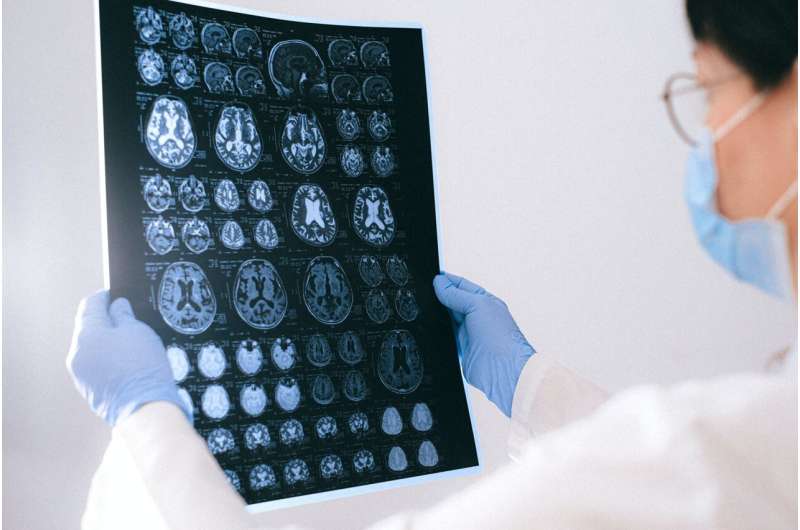This article has been reviewed according to Science X's editorial process and policies. Editors have highlighted the following attributes while ensuring the content's credibility:
fact-checked
peer-reviewed publication
trusted source
proofread
New drug shows promise for treating rare brain tumors

An experimental drug may provide a new treatment option for some patients with rare incurable brain tumors, according to an analysis published in the Journal of Clinical Oncology.
The results represent a new potential treatment option for patients who previously had none, said Karan Dixit, MD, assistant professor in the Ken and Ruth Davee Department of Neurology's Divisions of Neuro-oncology and Hospital Neurology, and a co-author of the study.
Diffuse midline gliomas, a type of rare brain tumor, are diagnosed in about 800 people per year in the U.S., according to the Centers for Disease Control and Prevention.
A subset of particularly aggressive diffuse midline gliomas are caused by a H3 K27M mutation and the only effective treatment is radiation, as the location of the tumor in the brain makes surgery difficult. Even with radiation, relapse is virtually inevitable and more than 70% of patients with this subtype of brain tumor die from the cancer, according to the National Institutes of Health.
In the study, investigators analyzed the results of five previous clinical trials testing the effectiveness of dordaviprone, an experimental drug which works by blocking a certain protein in tumors with the mutation.
The study included results from 50 patients with H3 K27M–mutant diffuse midline gliomas—46 adults and four children—and found that 30% of patients responded well to the drug. The most common side effect reported was fatigue, according to the study.
"Dordaviprone was shown to be effective in these recurrent histone-mutated gliomas, for which we had no other real management options," said Dixit, a member of the Robert H. Lurie Comprehensive Cancer Center of Northwestern University.
"Even in situations where the patient has received prior treatment, the cancers tend to come back more aggressive and less responsive to treatment. So, to have a treatment that was not only well tolerated, but had a meaningful response in about 20% to 30% of patients, is a major step forward. That may not seem like a lot, but these are patients that we had nothing for before."
Now, Dixit and his collaborators are launching a trial at Northwestern Medicine hospitals to investigate the drug's effectiveness in newly diagnosed patients, he said.
"We'll be the only site in Illinois to be enrolling people in the trial for this drug," Dixit said.
More information: Isabel Arrillaga-Romany et al, ONC201 (Dordaviprone) in Recurrent H3 K27M–Mutant Diffuse Midline Glioma, Journal of Clinical Oncology (2024). DOI: 10.1200/JCO.23.01134



















